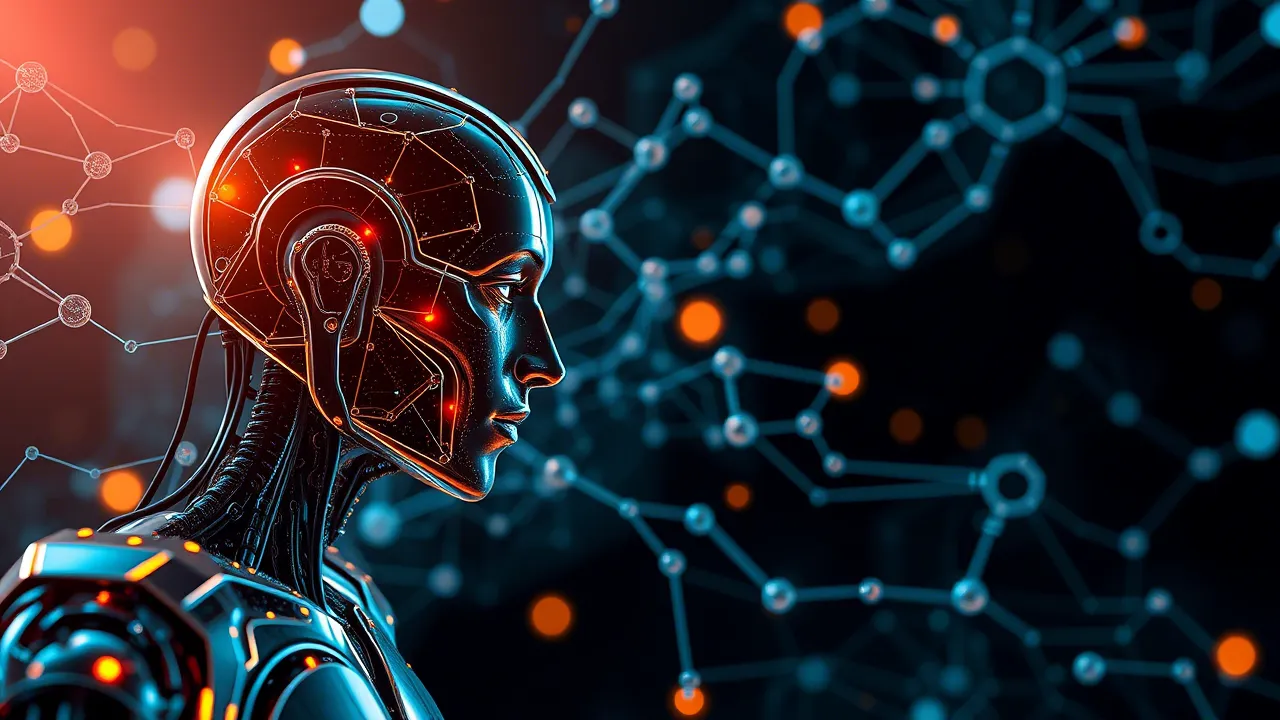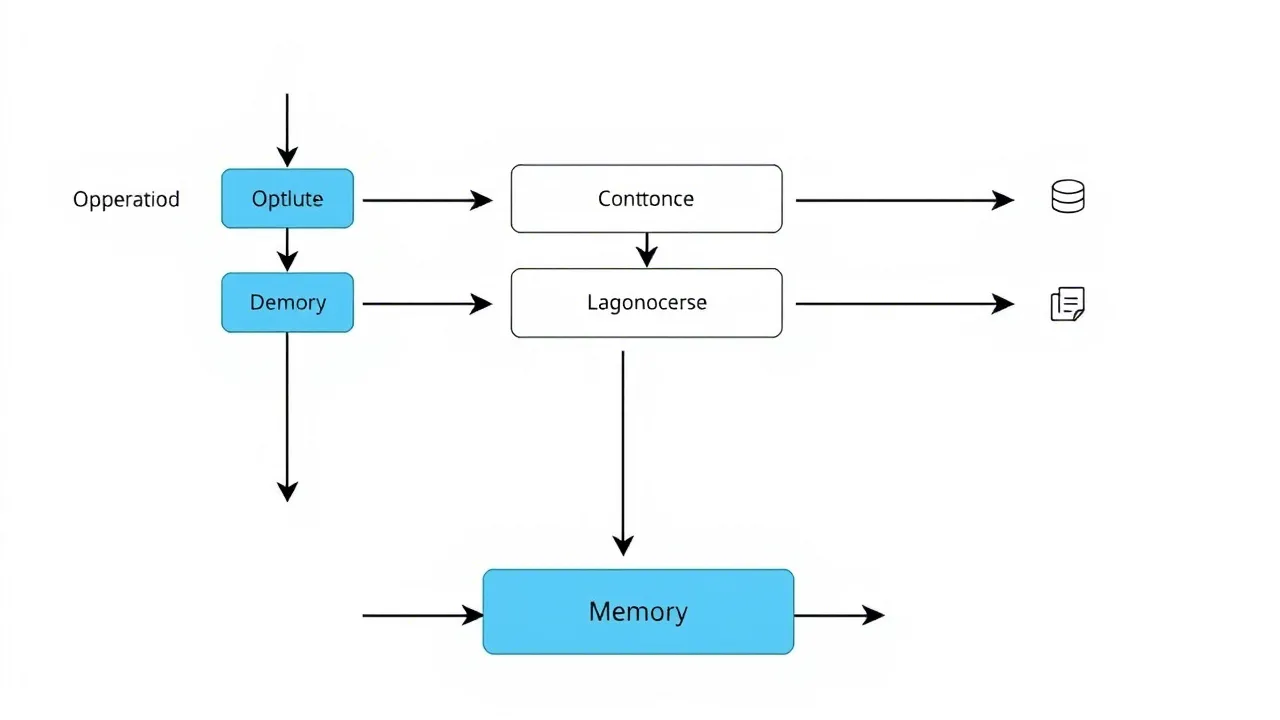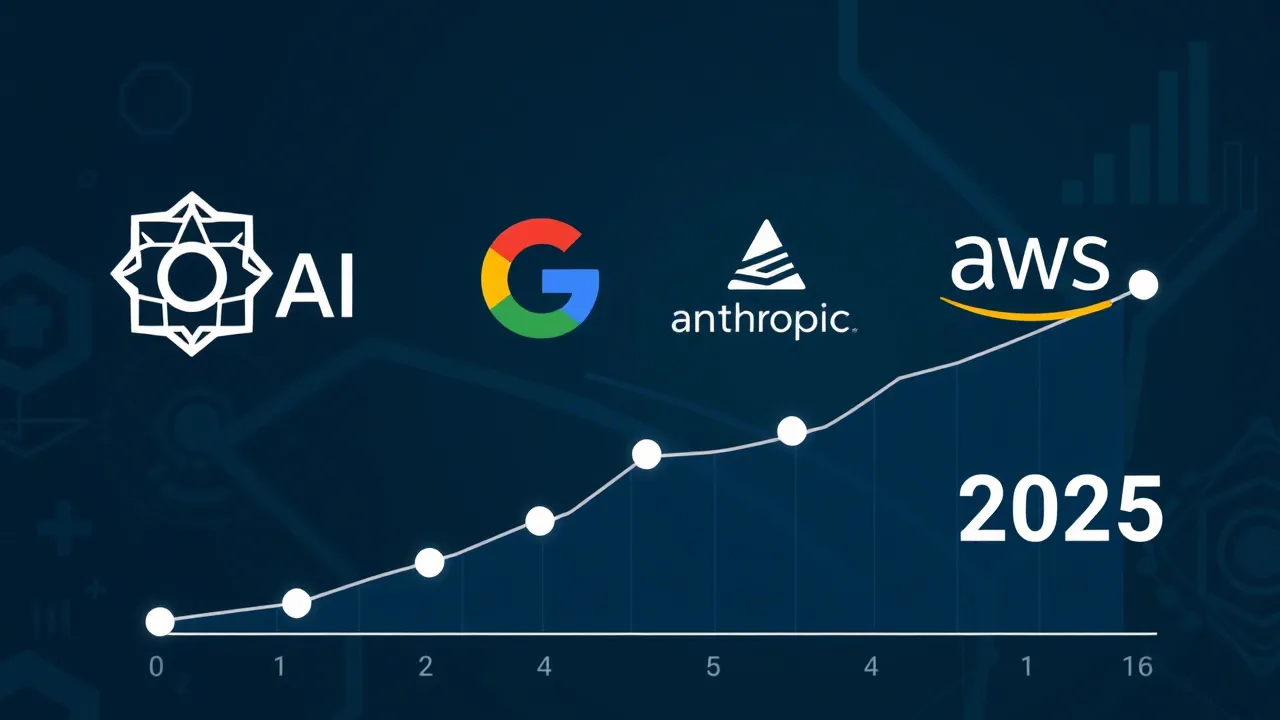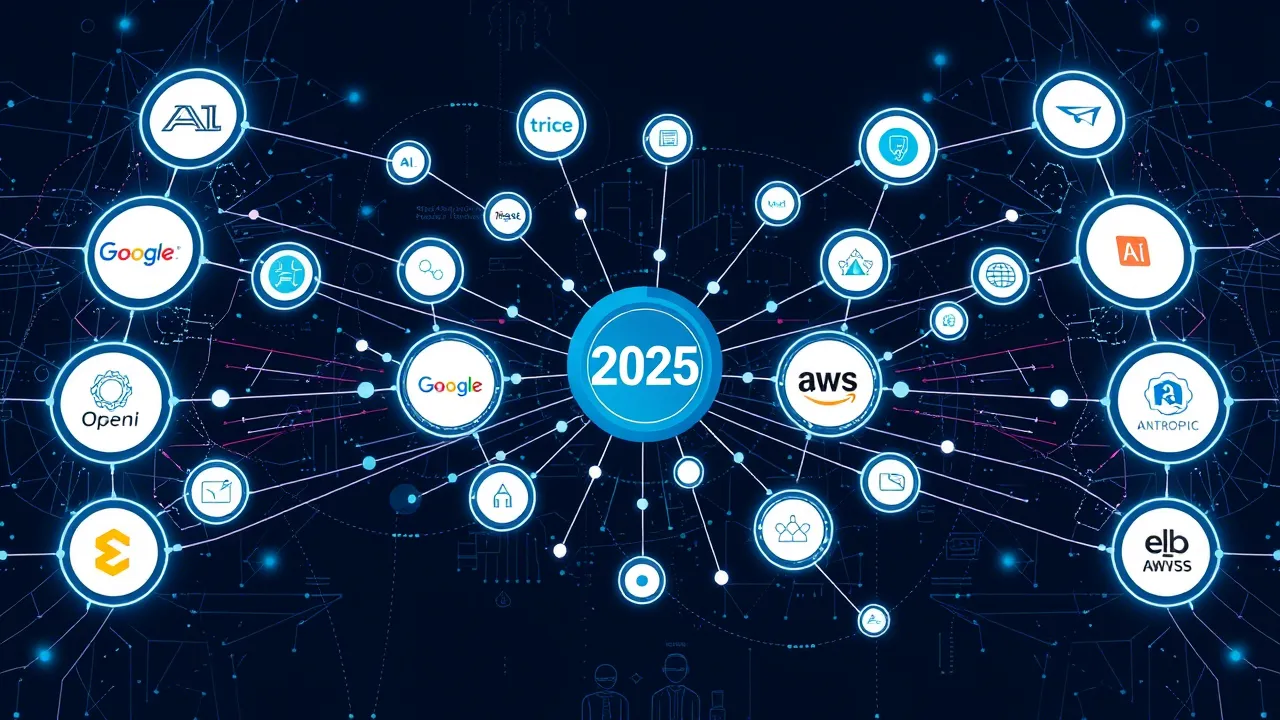The New Era of AI: Meet Autonomous AI Agents – The Brain of the Digital Revolution
Imagine a morning in 2025. Your personal AI assistant doesn't just wake you up and read the news. It has already analyzed your schedule, optimized your route considering traffic, ordered grocery delivery for the evening based on your preferences and refrigerator stock, and even prepared a brief summary of key work tasks requiring your attention. This is no longer just a voice assistant or a chatbot; it's an autonomous AI agent – proactive, goal-oriented, and capable of complex interaction with the digital and real world. Such systems are becoming the core of a new wave of the AI revolution, transforming everything from daily life to global business processes. Let's explore what AI agent ecosystems are, how they work, who is leading this exciting technology race today, and what incredible opportunities (and challenges) this presents.

Part 1: What Is an AI Agent Ecosystem? Understanding Terms and Concepts
The evolution of artificial intelligence has taken us from simple programs executing set instructions to complex systems capable of learning and adaptation. AI agents are the next logical step. Unlike traditional AI models or chatbots, which are mostly reactive (responding to queries), an AI agent possesses the following key characteristics:
- Autonomy: The ability to act independently to achieve set goals without constant human intervention.
- Proactivity: The ability to take initiative, not just react to external stimuli.
- Goal-setting and Planning: The ability to form goals (or receive them from a user) and develop multi-step plans to achieve them.
- Environmental Interaction: The ability to perceive information from the surrounding digital or physical environment and act upon it.
- Learning and Adaptation: The ability to learn from its own experience and adapt its behavior.
When we talk about an "AI agent ecosystem," we mean not only the agents themselves but also the entire infrastructure surrounding them. This includes: fundamental AI models (often large language or multimodal models), platforms for their development, training, and deployment (for example, cloud services like Amazon SageMaker provide powerful tools and computational resources), frameworks, interaction protocols between agents (especially in multi-agent systems where several agents collaborate to solve a common task), and even potential marketplaces for ready-made agents for various needs.
Part 2: How AI Agents Work: A Look 'Under the Hood'
At the heart of most modern AI agents are breakthrough achievements in deep learning, especially large language models (LLMs) and multimodal models. These endow agents with the ability to understand complex text and voice commands, extract meaning from unstructured information, generate coherent texts, reason, and even exhibit elements of creativity. Leading technology companies are actively developing such models – one only needs to recall the technologies underlying ChatGPT from OpenAI, the multimodal capabilities of Gemini from Google, or the focus on safety in Claude models from Anthropic. These models serve as a kind of "central processing unit" for agents.

In simple terms, a typical AI agent's work cycle can be described as follows:
- Perception: The agent collects data from its environment (text queries, sensor data, internet information, status of other systems).
- Interpretation and Modeling: Based on the received data and its internal knowledge, the agent builds a model of the current situation, understands the context, and identifies possible paths to the goal.
- Planning: The agent chooses the optimal sequence of actions to achieve the goal, possibly breaking down a complex task into smaller subtasks.
- Action: The agent performs the planned actions, interacting with digital services (sending emails, searching the internet, managing applications) or, in the case of robots, with the physical world.
- Evaluation and Learning: The agent analyzes the results of its actions, assesses success, and adjusts its behavior and models for future tasks.
Practical applications today (or in the very near future of 2025) are impressive: from super-assistants managing our digital lives to complex automation systems in business (customer support, marketing, logistics, project management), scientific research, and even creative processes.
Part 3: Leaders of the AI Agent Race in 2025: Who Sets the Tone?
The market for AI agents and their ecosystems in 2025 is characterized by intense competition and rapid innovation. Key tech giants and ambitious startups are vying for leadership, offering increasingly sophisticated models and platforms.

- OpenAI: Continues to develop its GPT models, which underpin ChatGPT and other products, focusing on enhancing their autonomy, capacity for complex reasoning, and integration with external tools, bringing them closer to full-fledged agents.
- Google / DeepMind: With their flagship multimodal model Gemini, Google aims to create AI agents deeply integrated into its entire product ecosystem – from search and assistant to cloud services and robotics. Great attention is paid to research in artificial general intelligence (AGI).
- Anthropic: The company is betting on creating safe, reliable, and useful AI systems based on its Claude models. Their approach to agent development often emphasizes ethical aspects and controllability.
- Other Major Players: Microsoft is actively integrating OpenAI technologies into its Azure AI platform and developing its own agent solutions. Amazon, through AWS and the Amazon SageMaker platform, provides powerful tools for creating and scaling AI agents for business. Meta (Facebook) is also not standing المشروع, developing its open LLMs (Llama) and exploring their application in metaverses and social products.
Competition spans many areas: the power and versatility of base AI models, the convenience and functionality of development platforms, the creation of successful applied solutions, and, importantly, ensuring the safety, manageability, and ethics of AI agents.
Part 4: The Future with AI Agents: Opportunities, Challenges, and Open Questions
The potential of AI agent ecosystems is enormous. They can radically transform virtually all spheres of human activity:
- Work and Business: Automation of routine and complex tasks, emergence of new professions (e.g., "AI agent conductor" or "ethical auditor of autonomous systems"), creation of hyper-personalized products and services.
- Science and Research: AI agents capable of independently conducting experiments, analyzing vast amounts of data, and proposing scientific hypotheses can significantly accelerate the pace of discovery.
- Daily Life: From smart homes fully managed by AI agents to personalized education and healthcare.
However, along with opportunities come serious challenges:
- Safety and Control: How to ensure that highly autonomous AI agents act predictably and do not get out of control, especially if they manage critical systems?
- Ethical Dilemmas: Who is responsible for decisions made by an AI agent, especially if these decisions lead to negative consequences? How to program "morality" into a machine?
- Socio-Economic Shifts: The mass adoption of AI agents will inevitably affect the labor market. How will society adapt to these changes?
- Risks of Centralization and Monopolization: Control over key AI agent ecosystems may end up in the hands of a few tech corporations, creating new forms of dependency and inequality.
Conclusion: AI Agents: Intelligent Partners or New Masters of the Digital World?
AI agent ecosystems are, without a doubt, one of the most exciting and potentially revolutionary technologies of our time. The year 2025 marks an important milestone in their development, but it is definitely just the beginning. The opportunities they open up seem limitless, but the challenges перед нами also demand the most serious attention.
Whether AI agents will be our intelligent partners, greatly enhancing human capabilities, or turn into something else, the future will tell. Much depends on the goals we set for them, the ethical frameworks we create for their development, and how consciously we approach their integration into our lives. One thing is clear: AI agents are already here, and they are changing the world.
